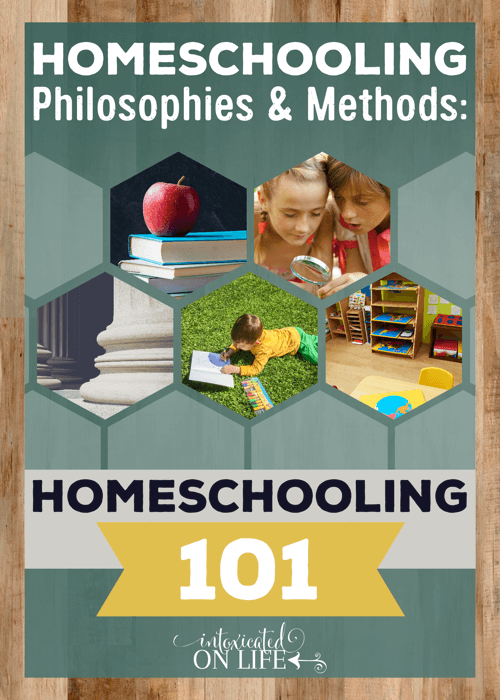You don’t have to be in the homeschooling world for long to learn there are different philosophies of education out there. These philosophies of education all have different understandings of…
- How children best learn and appropriate knowledge at different stages of life
- What kind of educational resources (like “living” books, textbooks, worksheets, exams, manipulatives, art, natural surroundings, etc.) are most helpful for parents and students alike
- How rigorous or relaxed education should be
- What topics are important at various ages and stages of education

We want you, as a homeschooling parent, to be informed about the various methods and approaches to education so you can make the best choice for your child.
The Traditional Textbook Approach – For those familiar with public or private schools, textbooks need no introduction. Textbooks and workbooks contain a built-in graded assignments, following a simple scope and sequence.
The Unit Study Approach – A unit study is when you center your homeschool learning around a theme. You cover many subjects in a way that relates to this theme.
The Charlotte Mason Approach – Named after its founder, the Charlotte Mason approach focuses on shorter lessons, with an emphasis on “living” books, narration, copywork, dictation, hands-on math, memory work, nature study, music and art appreciation, and handicrafts.
The Montessori Approach – Named after Dr. Maria Montessori, this approach focuses on creating a prepared environment where children learn for themselves through discovery before they are taught traditional academics.
The Classical Education Approach – Rooted in the educational models of the Greeks and Romans, classical education is focuses on three stages of educational development (grammar, logic, and rhetoric), integrating all subjects through the study of history, with a strong emphasis on the mastery of language.
The Eclectic Approach – An eclectic approach is attempting to taking the best from many approaches to match your child’s specific needs.
While there are other approaches out there to education, these are the ones we’ve found to be the most conducive to learning.


